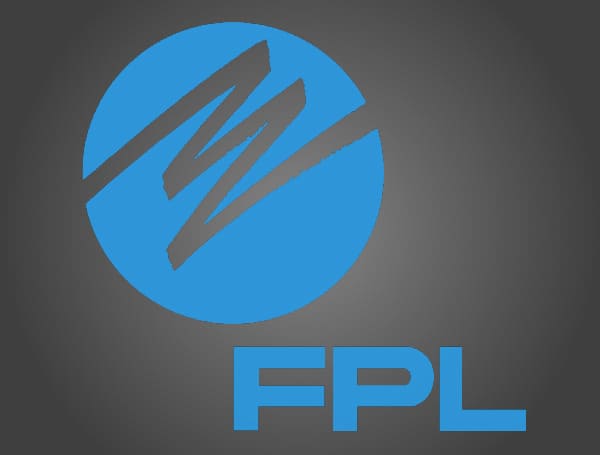More than a year after customers started seeing higher bills, the state Supreme Court next week will hear arguments in challenges to a settlement that increased base electric rates for Florida Power & Light.
The Florida Public Service Commission in late 2021 approved the settlement, which included a complicated mix of issues such as FPL’s profit levels and expansion of solar energy.
In two challenges consolidated at the Supreme Court, opponents contend the four-year settlement is not in the “public interest” and was improperly approved by the regulatory commission. One of the challengers, the group Floridians Against Increased Rates, contends state law didn’t give the commission authority to approve parts of the settlement.
In the news: Two Florida Doctors Convicted In Scheme To Defraud Medicare Out Of $31 Million
“If allowed to stand, the 2021 FPL settlement will result in FPL’s customers paying hundreds of millions of dollars per year, totaling in the billions of dollars, in excessive costs over the next four years,” Floridians Against Increased Rates argued in an April brief. “This is a gross miscarriage of justice — imposed on FPL’s customers by the PSC’s failure to act consistently with its own contemporaneous decisions — and the court should reverse the (commission’s) order accordingly.”
But the commission and FPL dispute the opponents’ arguments, with the utility saying in a brief that the regulators’ final order approving the settlement “is fully supported by competent, substantial evidence showing that the settlement is in the public interest.”
“The settlement’s negotiated terms benefit customers by enabling them to continue to receive low bills, high reliability, improved emissions and excellent customer service, while simultaneously allowing FPL to maintain the financial strength required to secure those benefits,” FPL said in a July brief.
The Supreme Court arguments, scheduled for Wednesday, come at a time when utility customers across the state face higher bills because of a combination of factors, including increased base rates and natural-gas costs that soared last year.
In the news: Florida Man Gets 30 Years After Killing Man With Fentanyl That Was Supposed To Be Cocaine
Base-rate cases are closely watched, as they involve billions of dollars and mounds of highly technical information. Base rates make up a large portion of customers’ monthly bills and also help determine how much profit that utilities can earn.
FPL filed a base-rate proposal in early 2021 and ultimately reached a settlement agreement with several parties, including the state’s Office of Public Counsel, which represents consumers in utility issues. Other parties in the settlement included the Florida Retail Federation, the Florida Industrial Power Users Group and the Southern Alliance for Clean Energy.
The Public Service Commission later approved the settlement, which included a $692 million rate increase in January 2022 and another $560 million hike that took effect last month. The settlement also will allow increases in 2024 and 2025 to pay for solar-energy projects.
The settlement set a range for FPL’s allowed return on equity, a key measure of profitability. That range initially went as high as 11.7 percent, with what is known as a “midpoint” of 10.6 percent. The commission last year approved an increase of the maximum to 11.8 percent, with a midpoint of 10.8 percent, because of part of the settlement tied to the U.S. Treasury bond yield rate.
In the news: Police In Florida Searching For 74-Year-Old Man Who Went Missing After Picking Up Lyft Riders
Floridians Against Increased Rates and a coalition of three other groups, Florida Rising, the Environmental Confederation of Southwest Florida and the League of United Latin American Citizens of Florida filed the challenges at the Supreme Court. They were not part of the organizations that reached the settlement.
The challenges deal with a series of issues in the settlement, including the allowed return on equity. The opponents pointed, for example, to FPL being allowed to earn a higher return on equity than Duke Energy Florida and Tampa Electric Co.
“Both FPL’s returns and the rates based thereon are unfair, unjust, unreasonable and excessive because they are facially excessive as compared to the PSC’s contemporaneous decisions in (Duke and Tampa Electric base-rate settlements). … FAIR simply asks for the fair, just and reasonable result, namely that FPL’s rates be set … to achieve returns comparable to those approved for utilities in the same business, in the same state, operating under the same statutes, and in the same time frame,” the Floridians Against Increased Rates brief said.
But the Public Service Commission said in a July brief that the argument that regulators should be bound to returns “established for Duke and TECO, in settlement agreements that were based on very different circumstances, is both contrary to the law and the record evidence.”
“The investments that Duke and TECO have undertaken do not correspond to the risks and uncertainties as those undertaken by FPL,” the commission’s brief said.
Android Users, Click Here To Download The Free Press App And Never Miss A Story. Follow Us On Facebook Here Or Twitter Here.


